Metric - Interview
by Jamie Rowland
published: 24 / 6 / 2009
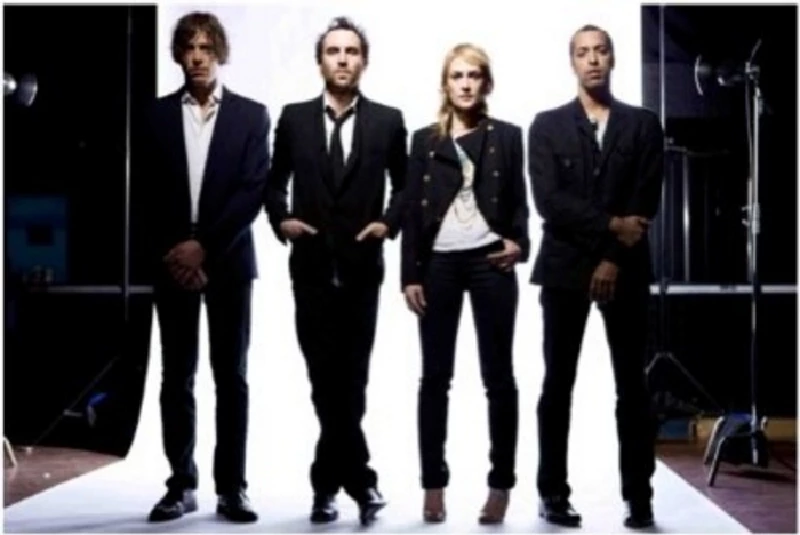
intro
Canadian new wave/indie rock band Metric have just released their long awaited third album, 'Live It Out'. At a show in Manchester Jamie Rowland speaks to bassist Joshua Winstead about the new album
It has been four long years since Metric’s last offering, the brilliant 'Live It Out', but 2009 finally sees the Canadian band release their third album-proper, 'Fantasies', a record which manages the difficult task of taking the band into more commercial territory whilst maintaining enough of their sound not to upset their fans. Metric are drummer Joules Scott-Key, guitarist James Shaw, bassist Joshua Winstead and keyboardist/vocalist Emily Haines. As well as releasing records collectively, since 2005 the group’s members have also appeared on side projects, solo-efforts and collaborations, alongside extensive tours and festival appearances. And now, with the release of 'Fantasies', the Metric live experience is coming back to Europe, with a number of festival appearances over the summer, including Glastonbury and the Carling Weekend. We met up with Joshua Winstead when the band stopped off at Manchester’s Academy3 to talk to him about working on the new album, the internet revolution and the records that influence his life and work. PB: Are you enjoying this tour so far? JW: It’s been fantastic; Europe was amazing. It’s really nice to go over someplace far from home and be so well received, and every time we come back, we expect it to change, but it’s so funny when it changes more than you expect. It’s really nice to come back and people remember you, and you meet people and you think, “Oh gosh, I remember you when you were younger!” PB: When’s the last time you were touring Europe? JW: I think it’s been about 2 years. PB: And where have you been so far on this tour? JW: It’s just been a really short one so far; we did Paris and Cologne, Amsterdam, Brussels, Berlin, and now we’re here in Manchester. PB: And you’re doing a couple of shows in London, is that right? JW: Just the one show in London. London, Bristol, Brighton, Manchester, Coventry. Oxford maybe? Does that make sense? PB: Probably, that seems to hit all the main spots. When you are touring around Europe and other countries, do you get much opportunity to check out the local music scene? JW: This time we don’t have an opener with us, so we haven’t so much this time, but a lot of times in the past if we’ve had a day off people would take us to see bands, or we’d check out shows on our own, so yeah, it’s been really helpful. Also, there’s some of the bands that we’ve toured with and got to hang out with, like the Test Icicles when they were around – which is now Dev from Lightspeed Champion. We actually played here with the Test Icicles. PB: So that will have been about two or three years ago, I guess – they were only around for a year or so, weren’t they? JW: Absolutely, if that! PB: Do you have a preference for touring over writing and recording, or visa versa? JW: No not really, because they exercise such different parts of your lives. It’s nice when you’ve worked really hard on one. The thing of being able to work so hard on writing and recording an album is that then you get to go out and play it and play it until you’re exhausted, and then it’s perfect timing – it’s time to go back and let that creativity come out in a different way. Luckily, we get to do both. A lot of times, in the beginning, you’re just doing the writing and kind of crappily recording, and then you’ll do two or three shows, but it’s getting really balanced for us right now. It’s really nice. PB: So do you spend something like a year writing and recording, and then a year touring? JW: It tends to go a little longer; this time we took two years writing and recording – longer than we’ve ever spent working on a record – which is nice, but it tends to be more like a year, year and a half writing and recording, and then like three years touring. Probably next time, it’ll be a lot shorter for the recording process. PB: Is it right that you had your own studio in which to record 'Fantasies'? JW: Well, we did it in several studios; we started in a studio called Bear Creek, which is in Seattle, Washington – a good friend of ours, Ryan Hadlock, his family runs and manages it. It’s one of the oldest family-managed studios in the United States. So we started there, doing an acoustic, live-setting to get the feeling, the warmth of the album. Then we moved to Giant Studios, which is Jimmy (Shaw) and Sebastian Granger’s – he used to be from Death From Above 1979, he’s now Sebastian Granger from the Mountains. So, they have a studio together, and we did most of the recording there. We did some tracking of drums other places, when we needed a bigger room and things like that, but it was basically those two studios, and then we mixed it in New York City, at Electric Lady – which was also completely amazing, because that’s Jimi Hendrix’s old studio. PB: If you have that kind of prior knowledge of a studio, does it affect your work on the album? JW: Absolutely. We’re a band that works a lot on vibe; our environment is something that we recognise, as artists, affects us, so we don’t try to control it, but let it lead us in a way that it’ll have a positive influence on our lives, or whatever we’re trying to get. If we’re trying to write a moody song, we’ll make the environment moody. So those things definitely change according to what you’re surrounded by. When we were in Seattle, we were out in the woods, and we were playing a lot of acoustic guitar, and drinking in hot tubs and being really silly. In Toronto it was more dancey, and in New York we were more serious - there was a lot of guitar solo work going on and stuff like that. PB: While we’re talking about different sounds; if you look back over Metric’s discography to date, it seems to me that, while the songs on your different albums are all very much ‘of’ Metric they have a characteristic sound that ties them to your band. They are also quite distinctive to each individual record. I was just wondering if you go into each album with an idea of how it will sound, or whether it’s more of an organic process; that the sound is formed naturally as the album progresses? JW: We definitely have a vision of how we want the album to turn out. If you don’t know what you want, how can you get it? Sometimes, maybe a song will start out more like that, that you’re not really sure where it’s going. You love the changes, and you love the melody and the words or something, so you allow that to move sometimes; ‘Twilight Galaxy’ went through a lot of changes, and ‘Gimme Sympathy’ went through a lot of different changes. But we knew what we liked about them, it was just more like “how do we express that?” But for albums, we definitely have an idea of what we’re going to have, usually far before we’ve ever started recording. PB: So is that idea born from sitting down and discussing what album you want to make, or is it more a case of jamming together and think let’s work something out? JW: Both. Both happen, but there’s a lot of discussion before, and during I would say. We’ve had the luxury of being able to do that more and more. On the first album, we did that less, because we were just like, “we’re a band, and we just got together and this is what we do!” And somebody recorded it really well, and we were like, “Ok, now we’re done, let’s go!” Then with the second album, we’re a band that’s been playing together for three years, so we want more guitars and things like that, and then this album, we’re like alright, we’re a band that’s been playing together for six years now, so we want to me more expansive and more representational of what we are live and as people. PB: I read that the release date for 'Fantasies' was pushed forward because of an internet leak. is that true? JW: Did we push it forward? I remember discussing about pushing the release forward, but I don’t know if we actually did. I can’t remember because there were so many dates being talked about. It was leaked, but we also decided to relax on that, because almost everyone’s record gets leaked early. We were talking to Nigel Godrich, who’s working on this film we’re supplying some music for and he said “it’s only bad if it’s a bad album”. Well, you could say “yeah, if you’re Radiohead, and you have tons of cash”, but he’s actually right. If it’s a good album then people are clambering for it, and they want it and they’ll get it any way. I think that once they know that we’ve put out the album ourselves, and we’ve paid for it all ourselves and it’s our own company… You know, I think people are actually starting to respect that idea of not stealing music. If you need to steal it from the fucking internet, do it. A lot of times you come to the shows anyway. If you don’t have any money, I don’t want you to be broke. But I think there’s a thing about supporting each others work habits, you know what I mean? We’re surviving on this; a lot of people think you get the money from a record label and nothing matters, but no: everything we make, we make because we can come and hang out with you and play our music live, and then, if you buy our record, that’s amazing. PB: There does seem to be, perhaps more with record labels than with bands, a kind of fear-based opposition to the internet. JW: Sure, absolutely. Well, they see that they’re losing their foothold. Before they were the main conduit from which music flows from musicians to people, and it didn’t used to be that way – musicians would hang out, and people would come and listen, and they were like, “Wow, this is amazing, this perfect, this is how we want to do it”. Then all of a sudden, recorded music came about and people thought, “I can really sell this”, and they made themselves look like they were the ones creating the music and the fans, and people fell for it because also they created this glamour thing of millions and millions of dollars. But as that’s withering away, everyone realises that they can get the music wherever they want. So these guys are scrambling; they’re trying to survive and keep their big yachts and things like that, but it’s not going to happen off of you or me anymore. PB: So you’d say it’s a positive step then? JW: Absolutely. It’s the same thing that’s happening around the world with the economy and the markets crashing, because people are greedy. You can’t sustain your greed upon people who don’t have that type of funding for you. You can’t stand on the backs of people for so long, otherwise you fall or they force you off, and that’s what’s going on; people forced them off, and they’ve fallen. PB: You mentioned that you’re doing some music for a film, which I believe is the Edgar Wright movie, 'Scott Pilgrim vs. tThe World'. There are a lot of rumours around how much involvement you have with the project, and I was just wondering what you could tell us about your role within the production? JW: Well, Nigel Godrich is curating the music, and he asked us to do a song for it. We had a song that we were going to put on the album, but we thought it was more suited to the film. PB: Is that ‘Black Sheep’ (a live-favourite with Metric fans)? JW: Yes. PB: Have you read the Scott Pilgrim comics? No, I haven’t actually. I’ve heard they’re amazing. PB: Having read them myself, I think one of the most appealing elements is the way music plays such an important part of the story. I’ve heard that one of the bands in the books is based on Metric, so I was wondering whether you’re involved in that aspect of the film at all. JW: No, not so much. We’re involved in being ourselves, and that’s how we’re getting to influence. PB: In the last couple of years, as well as touring with Metric, you’ve all been involved with different projects; I know that you and Joules Scott-Key record songs as Bang Lime, Emily Haines has her album with the Soft Skeleton, and there are collaborations with Broken Social Scene and others too. I was wondering whether you felt it was important or has a positive effect on a band for its members to branch out and work on other projects? JW: I’m not sure if it is for everybody, but the four of us have a really strong relationship and we also know that we’re focusing on Metric. A lot of times when people do that, they’re kind of trying to say that they want to go off and do something else, but we don’t have that kind of dialogue. People look at it and go “oh, is Metric breaking up?” No, not at all. At that time, Joules and I were living in California, I’d just moved back to New York, and we had time off. I’d played guitar for a long time and sang for a long time, and we’d played together, so I was like let’s do a kind of heavy metal garage album; we did it for the summer. And Emily has the same thing; she has lots of music that doesn’t make it through the Metric mould, and those need outlets. I’ll probably do another one too, on our next break – maybe not a Bang Lime record, maybe just one on my own. But I think what it allows us to do is let this other expression out so you can learn about other things; learn other ways of listening to music, and then bring fresh ears back to Metric. PB: And then that will affect the next Metric record? JW: Absolutely. But there has to be a real degree of honesty between people, and I think a lot of times people are afraid to do that – for whatever reason, who knows and who really cares? But we’ve been together for a long time. Before we were in Metric, me and Joules had been friends since 1991, and Jimmy and Emily had been hanging out for like ten years too, so it was two groups of really good friends who had already learned to communicate, and as we came together we learnt to do that with each other as well. A lot of times people are lying to each other, and we’re trying to avoid that. PB: That sounds healthy. JW: Yeah, well we spend so much time together, we have to. If one of those seeds of discontent starts to grow and you’re like “I can’t sit comfortably!”, if you’re uncomfortable and you’re talking weird shit… there’s no need for that. PB: I wanted to wrap this interview up by talking to you about your musical influences, but I thought I’d be a bit more specific than just asking “who are your influences?” With that in mind then, what was the first record you ever bought? JW: The first record I ever bought was the John Williams soundtrack to 'Indiana Jones and the Raiders of the Lost Ark. It changed my life. PB: Wow, that’s a good one! Good movie, good soundtrack. Would you say that still has an influence on the music you make today? JW: You know what, I would say absolutely, yes. The thing about John Williams in general is that he understands melodic movement in the sense that you remember his pieces. In classical music, you go through themes. You won’t know he’s playing the hero theme until he brings it up more and more and more and more, but you start to feel it bubbling up, because the violin’s started, and the cello’s coming in, and the drums come in with it over something that was going on before. And it gets you, you get ready for something; it’s kind of like a pre-chorus. You’re almost in the chorus, and it has you pumped up, but then the chorus lands and you’re like, oh, I’m really there! So that kind of music has always had an influence on me. I really like classical music. And I thought I used to want to be a stunt man, too. PB: If you were in a bad mood and you wanted to pick yourself up, what song would you choose to do that? JW: That’s hard. What kind of a mood do I want to land in? Let’s say I want to land in an aggressive mood; right now, I like the song ‘Teen Creeps’ by No Age. That’s like a noisy, guitar and drum duo. PB: Do you have a guilty pleasure? JW: Musically? You know what, this is weird for me, because it’s just started for me and I’m really late on it. On the flight over, I watched the Coldplay live show. They were playing some place and there were helicopters flying around… I actually enjoyed it! I’ve always been like, “Ohh, it’s so cheesey”, but they were really good. It’s really simple, and I’m usually not that into that, but I was like – it sounds pretty good guys! So, I would say right now, that live Coldplay thing is a bit of a guilty pleasure for me. PB: It’s one of those things when everyone’s praising a group, but the people you want to be affiliated with are saying “it’s crap”, but you kind of like it really. Of course, you go along with it and say “yeah, they suck!” JW: Yeah, I’ll admit it; they’re alright. I don’t own any of their albums. At all. I don’t know any of their songs, but they’re pretty good. They were nice, you know? I like their vibe. They seemed like they were just dudes. Maybe it’s also now that they’re getting closer in my life; the guy that mixed our record also mixed Coldplay’s last record, and he went to the Grammys with them, and he’s always said that they’re awesome guys. Also Emily got to meet them and stuff like that. So maybe now that they’re a little bit more in my reality, as opposed to being some mega rock-stars that are off somewhere, where I’ll be like, “Yeah, whatever. Fuck you guys”. PB: Finally, if you had to pick an all-time classic record, what would it be? JW: Wow, that’s a really hard question, that’s something I should be prepared with… PB: Sorry, maybe I should have asked you that first and given you some time to think about it! JW: No, I should have that ready! I’m just gonna fly off the top of my head with ‘Miles Smiles’ by Miles Davis. That’s a fantastic album. Obviously, it’s not a rock album; it’s a jazz album, but I feel like the music Miles Davis was making in the mid-sixties was probably some of the most amazing music that’s ever been made. Obviously there are geniuses of orchestral music, and pop and rock and all that stuff, but I think there was something going on where the members of his group at that point – he picked them because they were as good as he was, and they could write as good as he could. A lot of the big hits were written by Wayne Shorter, who’s this sax player, and Herbie Hancock… the group of guys that were put together were just unbelievable; it’s an amazing album. I really like jazz a lot – I mean I really like lots of types of music, but that album has always been one that I was just like… unbelievable, unbelievable. PB: Thank you.
Picture Gallery:-
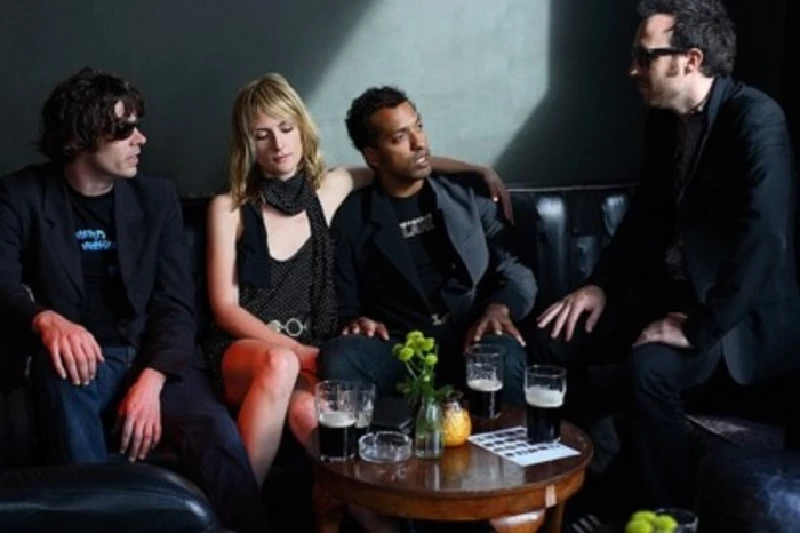
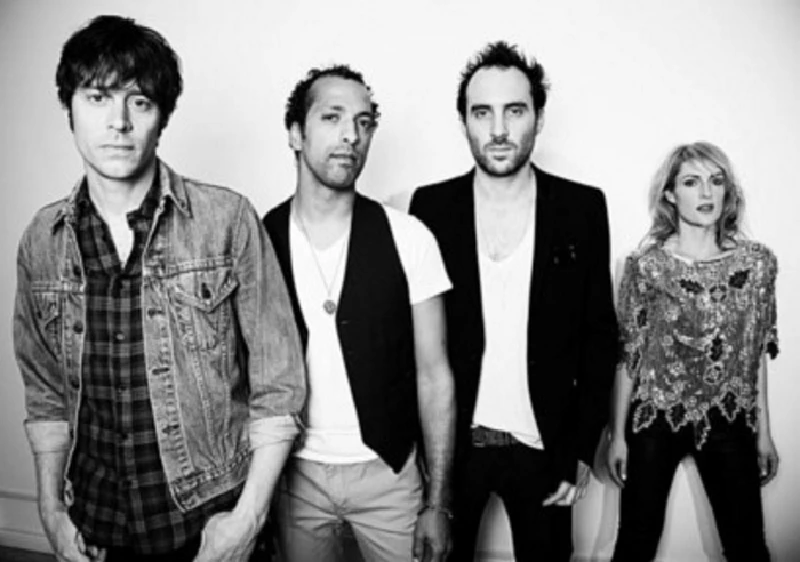
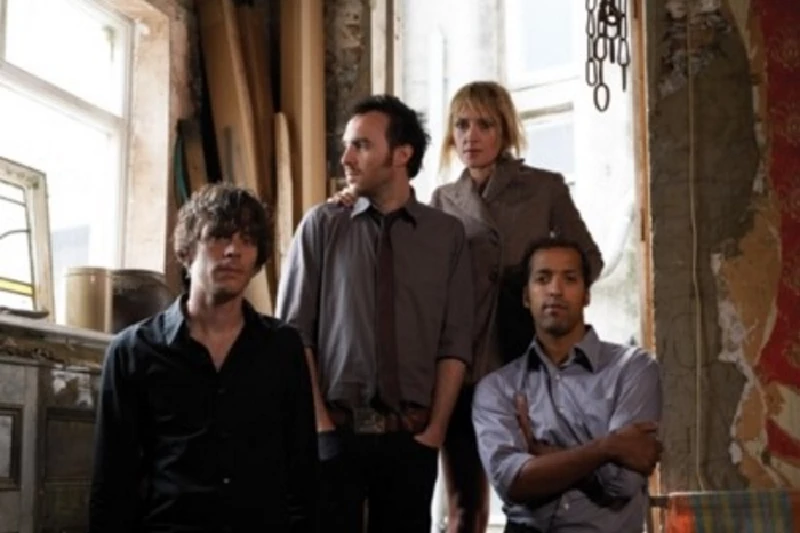
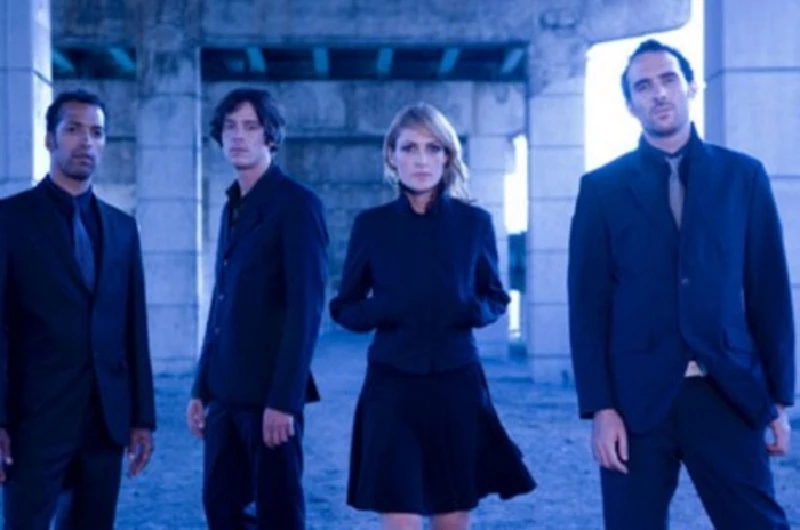
live reviews |
|
Shepherds Bush Empire, London, 2/7/2012 |

|
| Jamie Rowland watches Canadian new wave/indie rock band Metric play a fiery, if self-indulgent set at the Shepherd's Bush Empire in London |
reviews |
|
Fantasies (2009) |
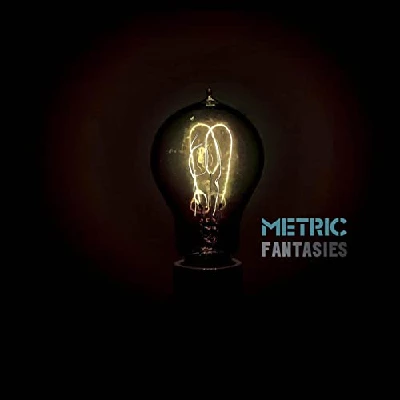
|
| Stunning first album in three years from Canadian new wave/indie rockers Metric which proves to have been very much worth the long wait |
most viewed articles
current edition
Carl Ewens - David Bowie 1964 to 1982 On Track: Every Album, Every SongBillie Eilish - O2 Arena, London, 10/7/2025
Bathers - Photoscapes 2
Bathers - Photoscapes 1
Cleo Laine - 1927-2025
Hothouse Flowers - Photoscapes
John McKay - Interview
Editorial - July 2025
Simian Life - Interview
the black watch - Interview
previous editions
Heavenly - P.U.N.K. Girl EPTrudie Myerscough-Harris - Interview
Pixies - Ten Songs That Made Me Love...
Boomtown Rats - Ten Songs That Made Me Love....
Fall - Hex Enduction Hour
Peter Paul and Mary - Interview with Peter Yarrow
Sam Brown - Interview Part 2
And Also The Trees - Eventim Apollo, London, 21/12/2014.
Doris Brendel - Interview
Place to Bury Strangers - Interview
most viewed reviews
current edition
Sick Man of Europe - The Sick Man of EuropeAmy Macdonald - Is This What You've Been Waiting For?
Phew, Erika Kobayashi,, Dieter Moebius - Radium Girls
Alice Cooper - The Revenge of Alice Cooper
Blueboy - 2
Lucy Spraggan - Other Sides of the Moon
Cynthia Erivo - I Forgive You
Bush - I Beat Loneliness
Davey Woodward - Mumbo in the Jumbo
Philip Jeays - Victoria
Pennyblackmusic Regular Contributors
Adrian Janes
Amanda J. Window
Andrew Twambley
Anthony Dhanendran
Benjamin Howarth
Cila Warncke
Daniel Cressey
Darren Aston
Dastardly
Dave Goodwin
Denzil Watson
Dominic B. Simpson
Eoghan Lyng
Fiona Hutchings
Harry Sherriff
Helen Tipping
Jamie Rowland
John Clarkson
Julie Cruickshank
Kimberly Bright
Lisa Torem
Maarten Schiethart